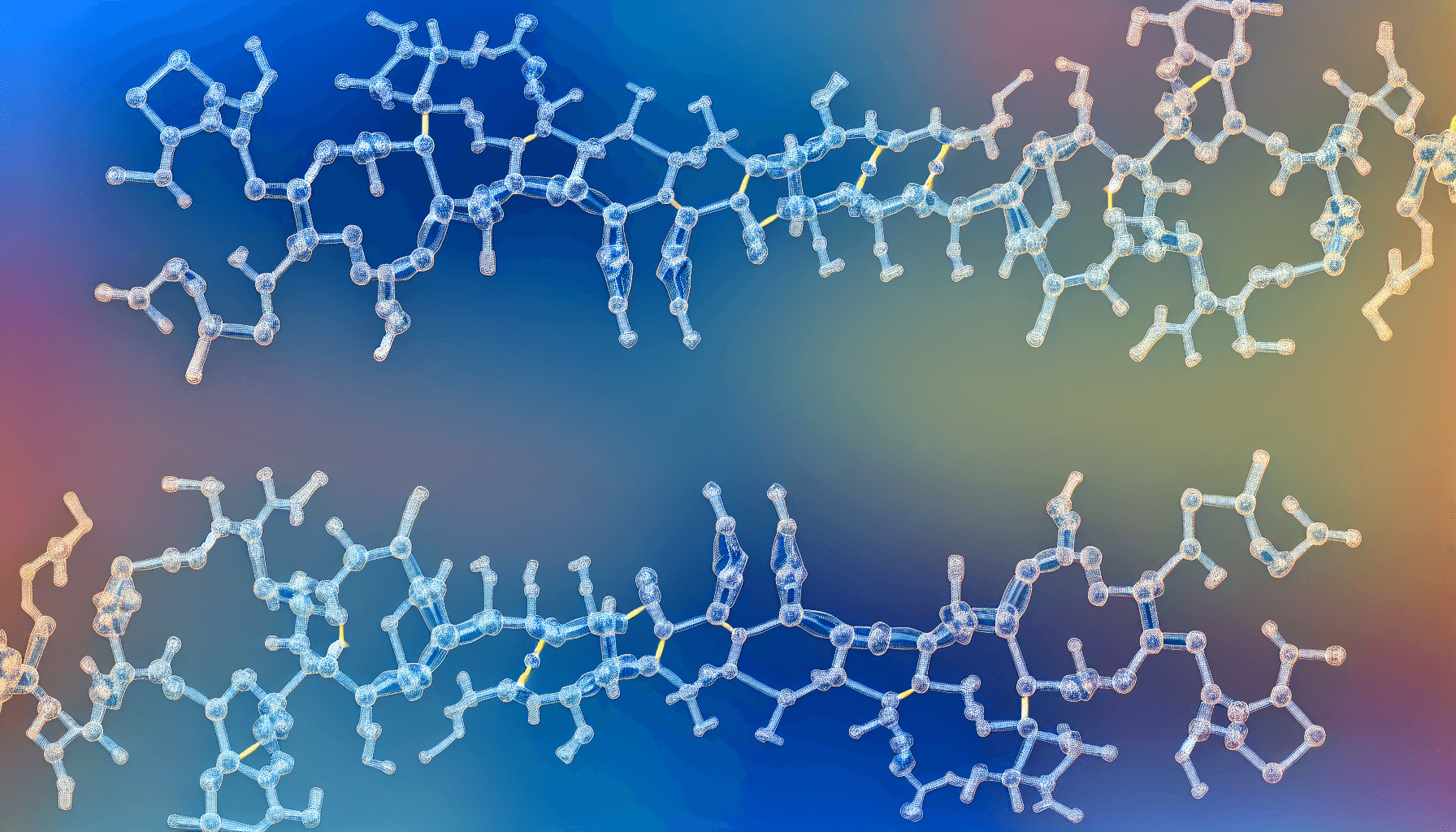Peptide therapy has gained significant attention in fitness and online communities, with proponents claiming benefits such as improved muscle recovery, faster wound healing, and enhanced libido. But what exactly are peptides, how do they work, and are they worth the hype? Let’s take a closer look at this emerging trend.
What Are Peptides?
Peptides are short chains of amino acids – the building blocks of proteins. While longer chains of amino acids form proteins, peptides exist in a simpler structure. Naturally present in the body, peptides play essential biological roles, including hormones like insulin, oxytocin, and endorphins.
Synthetic peptides, produced in labs, have become the foundation for several FDA-approved drugs, including semaglutide (the active ingredient in Ozempic) and linaclotide (used for irritable bowel syndrome). However, many peptides currently in circulation—particularly those popular in fitness circles—are not FDA-approved and remain largely unregulated.
Why the Recent Surge in Popularity?
Peptides have become a hot topic amongst fitness enthusiasts, athletes, and wellness-seekers. Prominent figures like Andrew Huberman and Joe Rogan have discussed them widely on their platforms. Many users on forums like Reddit’s r/Peptides community advocate for peptides as a way to achieve goals like improving recovery times, building muscle, or enhancing skin tone.
The growing consumer demand even led telehealth giant Hims & Hers to acquire a peptide facility to "deliver personalized medications."
Yet, professionals like Dr. Jesse Mills, Director of the Men’s Clinic at UCLA Health, urge caution. “Everybody’s looking for an edge and the perfect Hollywood body,” he observes. But are peptides truly effective, or is their popularity outpacing scientific evidence?
The Science Behind Popular Peptides
-
BPC-157 (Body Protection Compound-157)
Dubbed the "wolverine peptide" for its potential healing properties, BPC-157 shows promise for tissue and wound repair in laboratory studies. It appears to promote fibroblast activity, restoring connective tissues such as ligaments and tendons. While anecdotal reports highlight its effectiveness, clinical evidence in humans remains sparse.- Studies:
A small study of 16 patients found BPC-157 might alleviate knee pain when injected, while another study of 12 participants suggested benefits for managing interstitial cystitis symptoms. - Challenges: Lacking larger human trials, experts like Dr. Travis Dekker caution against unregulated use. Though athletes may be eager to use it for recovery following injuries, the lack of clear dosing protocols and safety assessments limits its reliability.
As of 2024, BPC-157 is a prohibited substance by the NCAA and the World Anti-Doping Agency (WADA). - Studies:
-
Sermorelin
Sermorelin is designed to stimulate the pituitary gland to release human growth hormone (HGH), indirectly increasing insulin-like growth factor-1 (IGF-1), which aids in muscle growth and repair.- Reported Benefits: Users often claim better sleep quality, fat loss, and quicker recovery post-workouts.
- Expert Caution: According to Dr. Larry Lipshultz from Baylor College of Medicine, sermorelin is popular but backed by minimal scientific evaluation on its benefits and risks.
-
Kisspeptin
Another emerging peptide, kisspeptin, has shown initial promise for improving libido in small randomized trials. However, its role in broader health applications remains under investigation.
Do They Actually Work?
The evidence for many peptides is still in its infancy, primarily involving small-scale or animal studies. Experts stress the need to distinguish between anecdotal claims and scientifically validated results. For instance:
- What We Know: Certain peptides such as semaglutide are rigorously tested and FDA-approved for specific treatments like weight loss. Other peptides like BPC-157 and sermorelin have yet to meet such scientific standards.
- What We Don’t Know: Side effects, long-term safety, optimal dosing schedules, and efficacy in humans remain unclear for many peptides.
Dr. Dekker notes a key challenge: "We don’t know the duration or concentration of the drug that needs to be delivered. We don’t know the timing during the day or in the setting of an injury."
Source: PubMedView Source
Risks and Safety Concerns
Peptides may seem like an attractive “natural” alternative to traditional hormone replacement therapies, but there are considerable drawbacks:
- Lack of Regulation: Many peptides are unregulated, so their purity and composition can vary.
- Unknown Side Effects: While scientific studies on peptide-related side effects are limited, users risk unexpected reactions without proper guidance.
- Legal Status: Some peptides are banned in professional sports and collegiate athletics.
Experts recommend relying on FDA-approved treatments when addressing medical concerns and proceeding cautiously when exploring peptides.
Conclusion
Peptide therapy holds promise for various health and fitness applications, but the field is still in its early days. While anecdotal evidence and preliminary studies generate excitement, more rigorous trials are required to validate their effectiveness and safety.
Before considering peptide use, consult with a healthcare provider to understand potential risks and ensure you’re making an informed choice.
